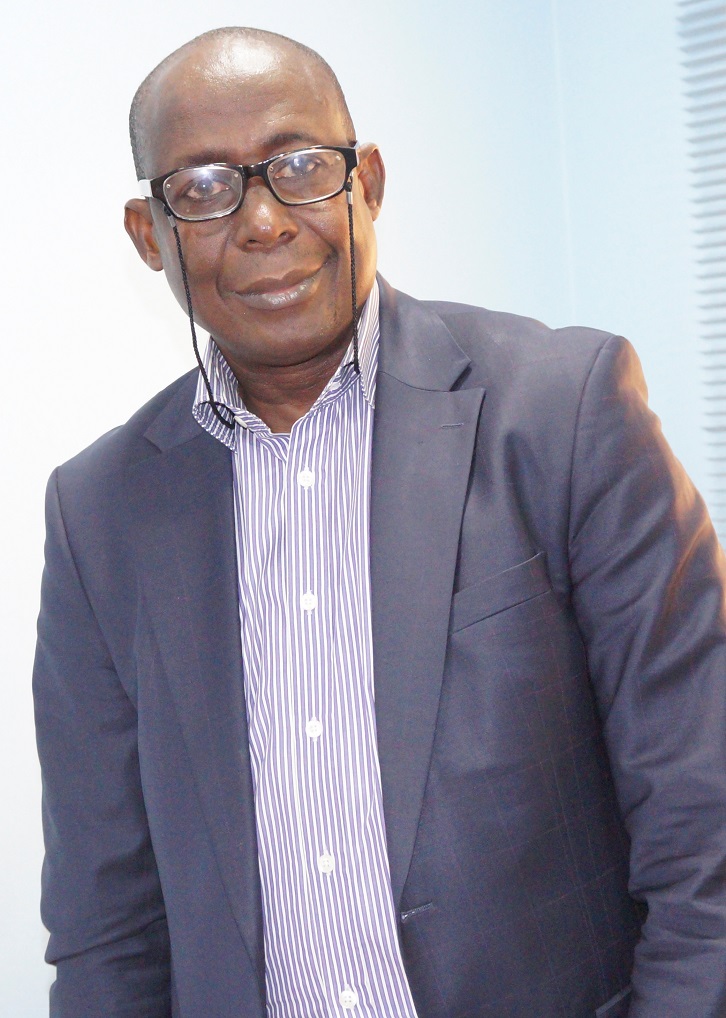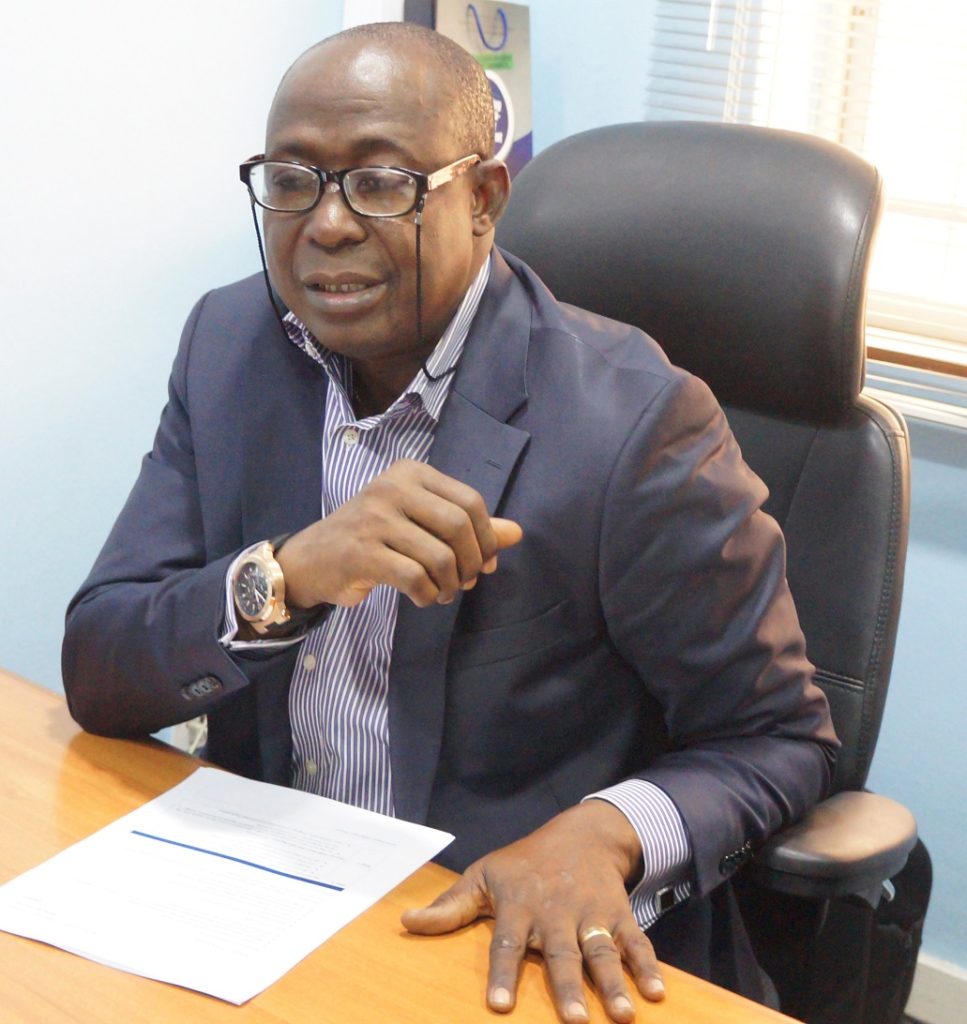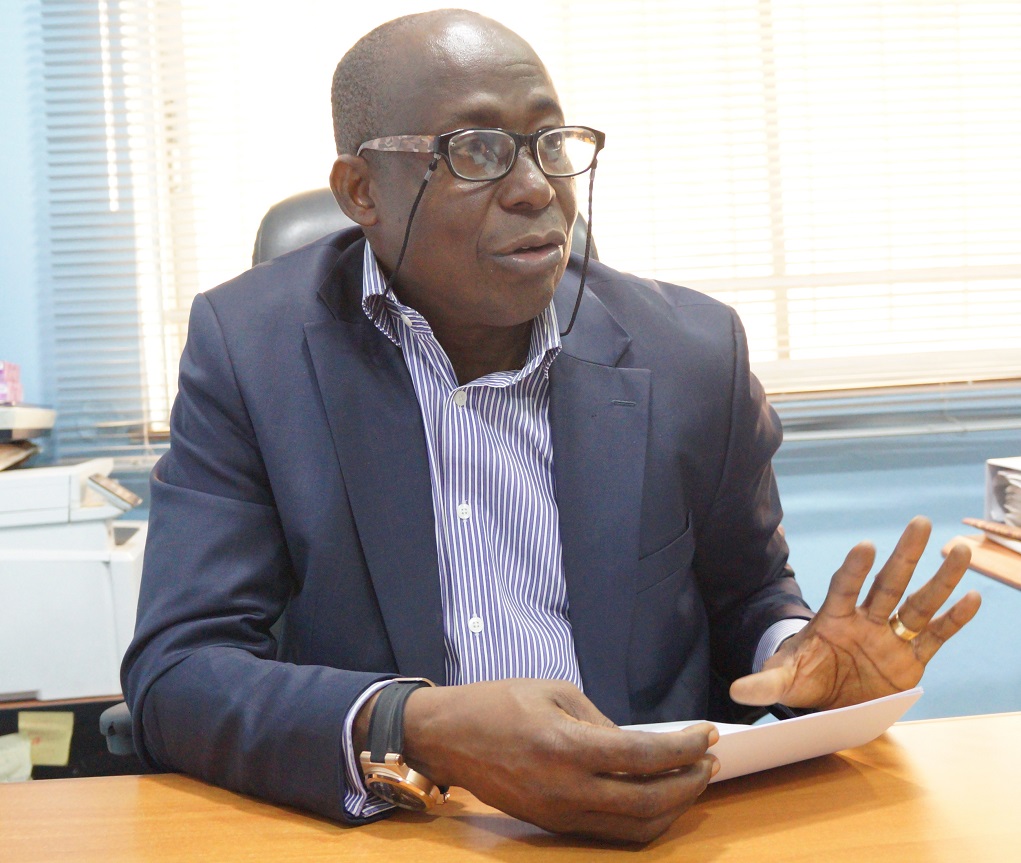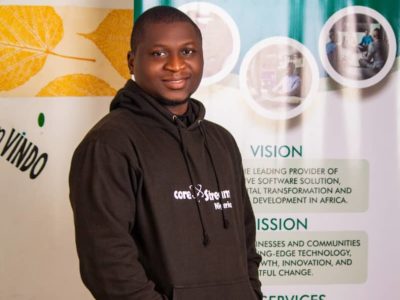Patrick Ede, Director of Operations at PPC Limited, system integrators offering an array of IT solutions in different fields, spoke with IT Edge News Nwakaego Alajemba and Clara Aghasili-Lingo, on why ICT companies fail in Nigeria and why local content is critical to building Nigeria’s future.
How will you describe PPC Systems Integrator in terms of what it offers its customers today – what are now your core areas of competency?
PPC is what they called divested Philip Project System Center. Philip Project Center was our original name. PPC Limited is in order to keep that brand. PPC Limited is wholly a Nigerian company. That does not mean we don’t do Philips again. We still do Philips but our rebranding gives us opportunity to go into other areas. Being fully Philips will limit our kind of operations. As Philips, we were more on ICT and medicals and we are still keeping the medical system even up till today. But what we are now gives us the leverage to provide integrated solutions to more vast areas. We provide medicals, ICT, power and building systems engineering which is called MEP – Mechanical, Electrical and Plumbing that is for building systems engineering. We also have transport development systems for transports. We are in the power sector and we have been here for 13 years. Also in ICT, we have huge presence. In fact, most people know us as an ICT company, but we have strong presence in other areas of our business. We have a wide spread of area of coverage and we have specialized teams on each area; specialized marketing technology team dedicated to each of our activities.
In transport, we are doing some jobs. We are working on the Blue Rail in Lagos, you have heard of Eko Rail. We are working on the cable, we provide the system and currently we are still installing. We have a transport system management, though it’s not very active in this country for now and that is the one area we are greatly developing. The other areas are vertical: the ICT, medicals, the building system engineering and power. The transport system for rail or cable car system for which we provide a lot of infrastructure and facility management system is still being developed in this country. We are already on ground with Lagos Rail project for the past 10 years, when they started the development. One day when it goes live, you will see PPC pasted even in your ticketing system, the CCTV facilities and the networks.
We are very huge in ICT because that is the main area we play and still playing today. We have been in the industry before the liberalizations of the telecom industry. We did the very first set of telecom service provisioning, the first licensing before they changed to what we have today. When we talk of the private operators, we were one of the oldest before they changed the old licensing. In 1999 they changed the license structure to prepare for the full liberalization of the telecom industry.
What exactly does PPC Limited do in the power sector?
We entered power and we started providing tele-protection and tele-control systems which are within the telecommunication area. What do we do? For technology dependent system and to have efficient energy management and efficient control of the infrastructure, we need telecoms coverage over the entire network. That will give you room to be in one place and see what is happening in your sub-stations or power stations. Today, we have what is called optical dial wires, which are power transmission lines, you won’t know except you know about it. They are the same lines carrying electricity they also carry telecommunication and control systems. You may expect them to run another cable somewhere or microwave whether fixed on that. We have the specialization to deliver telecom services over power line. Today, we have a spectrum of dedicated services across power transmission systems; and we also have people working on embedded power, an aspect that we are adding on our existence in the industry. On the embedded power what the NIPP does is to add it to the national grid.

“How do we get the Huawei’s of this world to start assembling here? How do we support and replicate local ICT companies like Zinox? Government can support people to assemble this kind of systems and this will, in turn, create employment. We need to see more engagement of people in the private sector to help achieve government’s goal on local content.”
PPC Limited is a system integrator, we provide solutions, we integrate and develop solutions, we customize solutions for people in any of the sectors. We are talking to some industry about what we called IT base medical management system and medical support systems. We have all manner of things that the medical division is providing but when you do it at integrated system you can get medical doctors doing tele-presence and tele-support for the field, so those are the kind of areas we go into. The medical guys are working there and the technology is there. The doctor right there can view your scan result and make recommendation. The service is there but you won’t know the people that know are providing such service. PPC is in the forefront of driving technological development in Nigeria.
Has government enough policy framework and laws to support companies like yours – or what should the government be doing to positively grow the ICT sector?
In the context of the Nigerian content policy, we are still going to have some things to do because people think that the Nigerian content policy was more for the oil and gas industry. The Nigerian content is supposed to be for everything we do. Until we put it on everything, we still have to depend on external support, and people will still go out to get what they want even when we have capable people in the country that can render such service without resorting to Europe and America, etc. Government still has some roles to play to make us realize the value we have and to create employment. The moment a government starts creating value in the citizens and utilizing what they have then it is creating employment. Today, we can see that ICT is creating more employment than we have in oil and gas but people do not know. We have more people working in the ICT sector than people in the oil and gas. The ICT industry has created more jobs than the energy sector and government can still do more. When government liberalized telecoms, diverse job opportunities were created including the selling of recharge cards even till today. They have even upgraded, you can now sell your card via virtual means. But network coverage is still not enough, some people in the rural areas still don’t have access to telecom services/ internet. You have people taking JAMB examination in the village moving from one center to another because of network issues. They have to travel to their local government headquarters to write the JAMB exams. Government has to explore means of opening up rural areas and create new opportunities in those areas. Government has to get the agricultural sector fully covered leveraging on technologies and with the right policy frameworks. Also, it needs to do something on the Nigerian Content Development Initiative for the telecom industry to create more employment for Nigerians.
“The moment a government starts creating value in the citizens and utilizing what they have then it is creating employment….. The ICT industry has created more job than the energy sector and government can still do more.”
What do you think government should be doing in this aspect?
Look at what has been done in oil and gas sector; there is a Nigerian percentage that must be present in certain services. How many percent of similar services are being provided in ICT by Nigerians? We stop outsourcing some of our services to foreigners where those jobs can be delivered locally. We need to keep those jobs for Nigerians. Agreeably, we need to provide enough training, put a training plan in place to allow a time frame for which certain services can then be provided by Nigerians. We still buy all the equipment that we are using in the ICT sector from overseas. That is where we are lacking seriously. We don’t manufacture even basic components of IT/ICT tools. How do we set up assembly plants for these tools in Nigeria? How do we get the Huawei’s of this world to start assembling here? How do we support and replicate local ICT companies like Zinox? Government can support people to assemble this kind of systems and this will, in turn, create employment. These are practical approach to addressing the issues outside of just making business-friendly policies. We need to see more engagement of people in the private sector to help achieve government’s goal on local content.
What are major challenges of PPC Integrated Systems in Nigeria – absence of competent local skills, FOREX, multiple and high duties, inadequate power and the likes?
Take skill set, we have been known to pick the best and we train, that has kept us in the market. Nigerian companies don’t transform themselves. For 25 to 27 years, we are still here and still operating. But many Nigerian companies have disappeared out of the market. PPC has moved on. The human capital development is very important in our existence. We have faced many challenges but we have overcome. We keep the best skill set around, we equally trained a lot of people in-house, and externally just to keep abreast of what best is available and be able to do our integrated services. If you talk about the energy/power; this is everybody’s problem in this country. You must spend a lot of money to keep your business running. But the major headache is financial. The banks need to do more. If I have a platform that I need to finance outside of Nigeria, you find you can take a loan for 3-4 percent and you see the company flourishing, and before you know it, it’s trading in the stock exchange. But here in Nigeria, you cannot even get a loan to do the smallest thing, not from any bank. The banking industry isn’t doing anything to help businesses. Nigerian banks do not want to go through any developmental curve with anybody, so even when they eventually loan you money for business, they want it back quick and that is very difficult. So getting a loan from bank to drive technological development is a major challenge in this country. Nigerians are very intelligent people what they need is motivation, if you motive them they will perform wonderfully.

“Nigerian companies don’t transform themselves. For 25 to 27 years, we are still here and still operating. But many Nigerian companies have disappeared out of the market. PPC has moved on.”
Do Nigerian higher institutions produce quality materials in terms of human capital?
We have what is called Nigerian effect on the young graduates. Just like I said earlier, everybody wants it quick. People don’t take things to the root. There are people using computers today, they don’t ask how it all started, they don’t know the history. People don’t ask what the development stages are. They just come, they go to internet, they click. Somebody is posting the answers they are getting. There is no rudiment of studying the history or the roots. But there are still smart and intelligent products coming out of Nigerian universities but they are not as many as you would wish to have. Another thing is what government is doing to salvage the situation. We only get student to graduate amidst several strike and we don’t get the professionals to drive them and get the best out of them. Nigerian graduates don’t get the professional skills while in the tertiary institutions. Today, you see someone studying computer science and yet doesn’t even know how to operate a computer. Many of them don’t even know the history of computer. Some even, when they eventual operate it they go straight to Facebook, developed by someone in America. Our young ones don’t care about driving initiatives. They don’t ask themselves what value they can add to further enhance Facebook. We need to rework our entire education system.
Is there a future for ICT companies and integrators like yours in Nigeria or do you foresee the possibility of a shut down as has been the case with Michelin for example?
No company dreams to shut down. You can actually shut yourself down. It depends on how you drive your business. There are still companies making tires, that’s why I said risk self discovery is important in technological changes. Today, you may see an advert on your TV talking about 3G is good but 4G is better and then somebody is talking about 5G already. Already 5G technology is available and going to be there for long, very soon you will see them everywhere. And somebody is telling 4G. By the way the G is for Generation so you got to move from one level of G to another. If you only move with a lower level of G you will be left behind. For instance 1G -5G are all Gs but 5G is modern and can do a lot of things. So we are talking of people being left behind because they are not developing their system, the company will still be maintaining very old systems and by the time they wake up, they need to catch up every day. They need to keep abreast of what is happening. Government needs to drive the financial support that is required to keep the system running. You only need to know where you are going tomorrow or where is everybody going. So you have to be awake in the ICT. If you are awake, I don’t think you will shut down. But if you start sleeping maybe when you wake up the house is already on fire and you will be forced to shut down.
“Nigerian banks do not want to go through any developmental curve with anybody, when they loan you money, they want it back quick and that is very difficult. Getting a loan from bank to drive technological development is a major challenge.”
What are the next plans for PPC Integrated Systems as market and technology changes – What next?
We review ourselves virtually on daily basis. We do in-house review and prepare ourselves for changes. What next for us? We are moving with enhanced solutions to help humanity, integrated solutions to improve on what you already have. Value added kind of solution, probably if I have solution say in my medical division, if I bring my ICT plus the medical together, I can improve the way medical services are delivered to humanity, so I can improve. I will check for what I have to offer to make life better and for customers to benefit more and have a win-win situation. I will make profits, create employment for people. So the next plan is to keep leveraging on what we have and improve integrated solutions to what we deliver to our customers. Looking at what we can use technology to do.
































